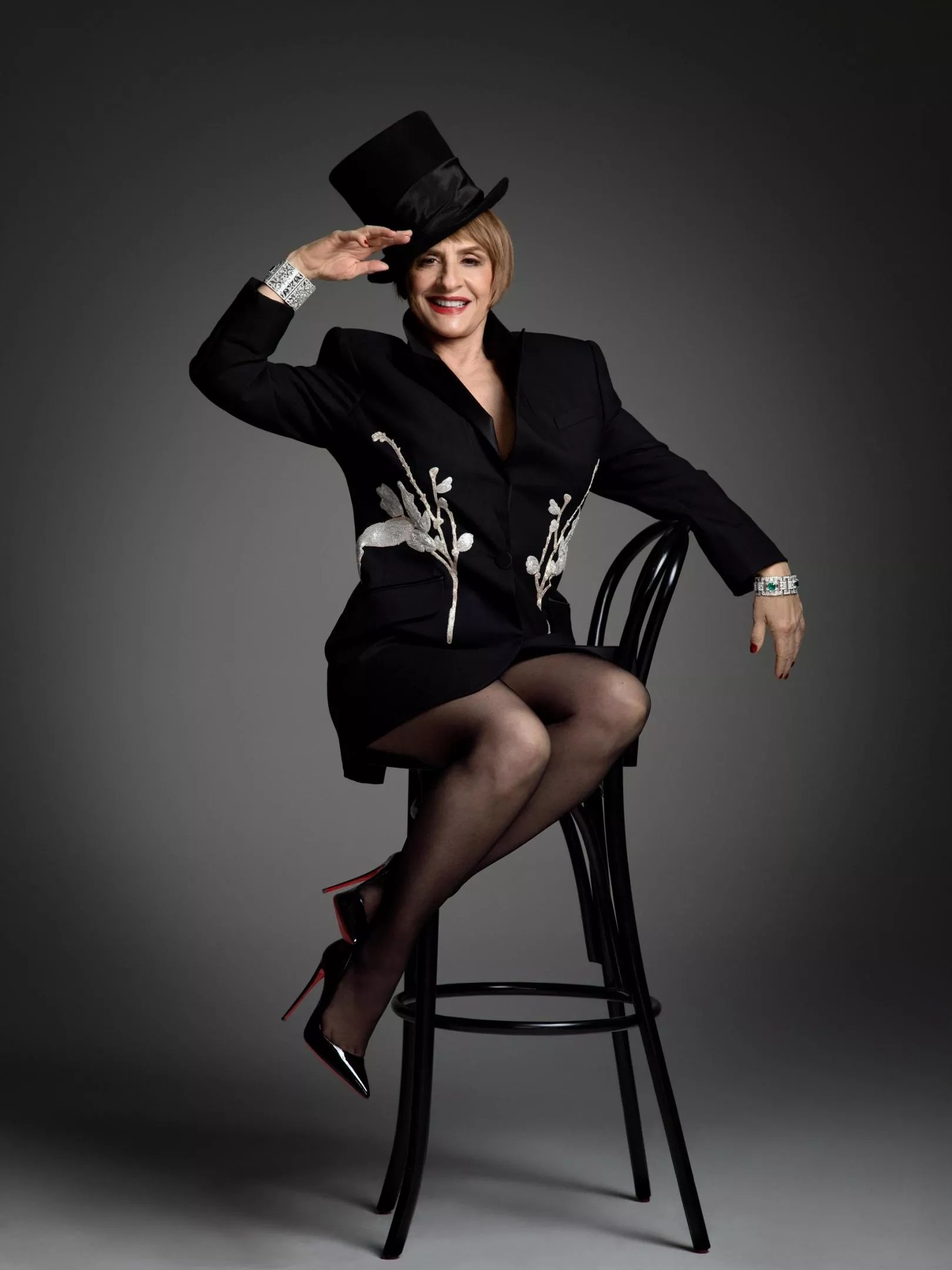
Douglas Friedman

Audio By Carbonatix
“Music is a gift, and has a power to crystallize a moment,” said a breathless Patti LuPone on Saturday night, moments after sweeping onto the Eisemann Center’s Hill Performance Hall stage, on the receiving end of the first of many standing ovations. “This is my life in music – so far.”
Few artists would know better than LuPone about the capacity of music to distill a performer, a piece or an entire artform to its essence. As she demonstrated repeatedly throughout her roughly 100-minute showcase Saturday in Richardson, the 74-year-old icon has lost none of her ability to transfix an audience, no matter the song at hand.
Her appearance at the Eisemann Center was her second in North Texas in under a year, following a performance at the Morton H. Meyerson Symphony Center in April 2023, alongside the Turtle Creek Chorale. LuPone’s current tour, billed as “A Life in Notes,” is ostensibly, as she described it Saturday, a “musical memoir.”
“I wrote a memoir 15 years ago, but I kept going, so there’s more story to tell,” LuPone cracked, one of many such lightning-quick asides sprinkled throughout.
Given permission to survey the totality of her life to date allows LuPone a flexibility to reach beyond that for which she is most widely known – originating roles in landmark theatrical productions such as Evita and Les Miserables, while leaving her mark elsewhere in television and film – and to present a more eclectic version of herself.
It was the sort of only-in-New York evening you’d expect to take in at Café Carlyle or Joe’s Pub, an intimate encounter with a legend, reveling in the close-up cabaret of it all. It was a testament to LuPone’s force-of-nature personality and peerless talent that the Hill Performance Hall felt as cozy as it did Saturday.
Backed by arranger-pianist Joseph Thalken, who parked himself at a grandly gleaming black Steinway grand topped with a vase stuffed with blood-red roses, and multi-instrumentalist Brad Phillips, toggling between acoustic guitar and mandolin, LuPone reached into her past to offer up a dizzying sonic mélange of her formative years: Rosemary Clooney’s “Come On-A My House” spilling into Carl Sigman and Robert Maxwell’s “Ebb Tide” tumbling into the Shangri-Las’ “Dressed in Black” and Mark Dinning’s “Teen Angel.”
The opening segment – the three-time Tony Award-winner singing nearly as quickly as she spoke, traversing the width of the hall’s stage – felt frenetic to the point of chaotic.
But eventually, the evening settled into a more meditative rhythm, particularly as LuPone began planting herself center stage, behind the mic stand, to deliver spine-tingling renditions of lesser-known tunes such as Marc Blitzstein’s “I Wish It So” alongside staples including Jule Styne and Stephen Sondheim’s immortal “Some People,” from the musical Gypsy, which LuPone delivered as though she were intent on leveling the building through sheer force of will. It was in these (comparatively more) contemplative moments where the full force of the American Theater Hall of Fame inductee’s prodigious talent was most striking.
Having long considered herself “an actor who sings,” the Juilliard-trained mezzo-soprano disappeared into her work, transforming herself, with little more than a look, a shift in body language or the strength of her voice, into a lost little girl, a defiant striver or a wistful romantic.
The night’s first show-stopping moment came midway through the first act – “A Life in Notes” was split by a 20-minute intermission – as LuPone delivered a version of “Lilac Wine” (a 1950s pop tune repopularized by Jeff Buckley in 1994) utterly devastating in its tenderness. (It was a delicate moment teed up in self-deprecating fashion: “I first heard this in a haze of marijuana smoke in a Manhattan apartment that looked like a Bombay bordello,” LuPone said. “I was 19. I was falling for a 28-year-old.”)
The night’s second half held much of what those gathered inside the Hill Performance Hall likely turned up to hear: LuPone belting Broadway classics. Resplendent in a black, sparkling gown, the pride of Northport, New York, did not disappoint. The trifecta near the top of the second act – “Don’t Cry for Me Argentina,” “I Dreamed a Dream” and “The Ladies Who Lunch” – was a 15-minute masterclass, an astonishing presentation in miniature of how to rivet a full house with nothing more than your voice. The stage, lit by a continually shifting palette of light, was bare, save for the backing musicians.
“Argentina” was performed with nothing more than LuPone and Phillips on an acoustic guitar, adding flamenco-flavored flourishes. By stripping away everything, the raw emotions at the core of the bombastic anthem became even more so. The atmosphere became more scabrous still during the exquisite “Lunch,” from Sondheim’s “Company,” as LuPone, who won her third Tony Award in the 2021 revival of the production, clutched a martini glass, and feigned a drunken wobble, the acidity of every line leaking from her lips.
The audience, young and old alike, showered LuPone with standing ovations again and again, shouting its appreciation at various interludes, but otherwise maintaining a respectful, attentive (and, frankly, quite welcome) silence. The worshipful quiet would be broken, at regular intervals, only by laughter, as LuPone took care to leaven the weightier material with quips, either at her own expense or others. (During “On Broadway,” after the line “They say that I won’t last too long on Broadway,” LuPone fired off a particularly knowing “Ha!”)
Call it another mark of being an old pro, but LuPone knew how to put a bow on the night as neatly as she’d summarized it at the top: “There is some comfort in the past, and the touchstones that marked a moment,” she said, near the evening’s conclusion. Indeed, it was difficult to file out into the night feeling anything other than grateful for having experienced this particular moment, and basking in the overwhelming power of a true master’s artistry.